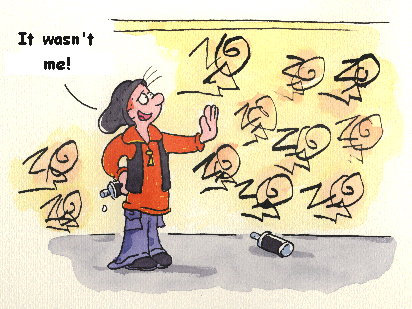Admission is the first
step in the process of taking responsibility for one's action. It
is the door which leads to the alternative for the child to atone
and make up for the infraction and to restore his damaged reputation.
Admission is best seen
as a process which consists of several phases. In the first phase,
admission is tentative and cautious. In the final phase, however,
admissions are frank and honest.
To begin with, the pupil
may not admit to anything, although he may be willing to discuss
what has happened, and what consequences there would be if it were
revealed that he is guilty. In the next phase, he may actually admit
to you what he has done, even if he refuses to discuss details.
Finally, he agrees to discuss specifics of what happened, but true
owning up only takes place when he is willing to speak about what
he has done not only with you, but in the presence of other people
as well.
The pupil can be helped
to own up to his wrongdoing by discussing with him what would happen
if he was to confess. Admission may be far easier for the pupil
if he can see in front of him a way out - such as the steps of responsibility
as discribed on these pages.
Example
A boy had missed school and upon his return had given his teacher
a note which was puportedly signed by his mother. The note said
that the child had been ill. The teacher later met with the mother
who informed her that she had not written any such note. She in
fact had no knowledge of her sons whereabouts on the days he had
been missing from school. When the teacher talked to the boy again,
he denied having forged his mother's signature and argued that his
mother must have forgotten having written the note. Instead of trying
to prove the boy that he was lying, the teacher started asking the
boy what he thought would happen if it came out that he had falsified
his mother's signature. It turned out that the boy was afraid that
his parents would be informed, that they would become angry and
punish him by taking away his mountain bike. The teacher discussed
various alternatives with the boy, weighing the benefits and the
drawbacks of admiting and denying. When the boy realised that his
parents would be informed in any case, he came to the conclusion
that it would be better for him to take the issue up with his mother,
and after that also with his father.


